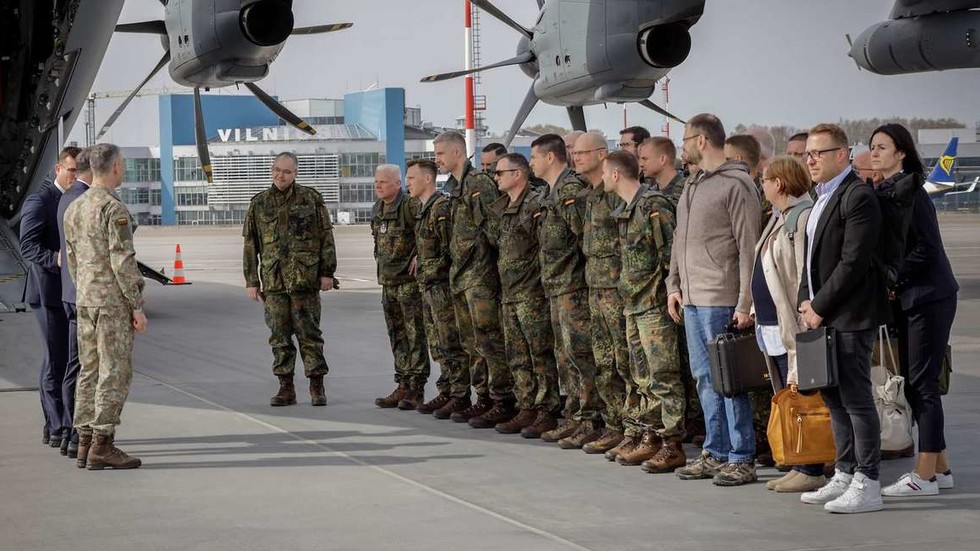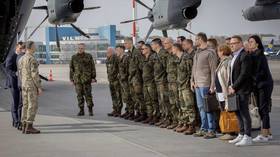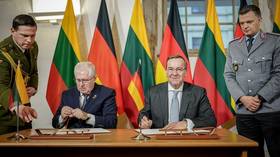
Berlin has deployed the first soldiers from a promised 4,800-strong force to Lithuania

The Panzerbrigade 45 advance team © Bundeswehr / Marco Dorow
Germany has sent an advance military team to Lithuania as part of plans for a full-strength armor brigade permanently stationed in the Baltic state, which borders Russia. Moscow has described the mission as a threat that requires “special measures” in response.
German Defense Minister Boris Pistorius was among those to see off 21 military service members and civilian employees who departed on Monday from Berlin to Vilnius. The minister praised the Bundeswehr deployment as “a clear signal of solidarity” with Germany’s fellow NATO member.
The Lithuanian Brigade, or Panzerbrigade 45, is set to include some 4,800 soldiers and 200 civilian employees by the time it becomes fully operational in 2027. It will be hosted at the Rudninkai training ground in the southeast of the country as well as near the town of Rukla. Some German troops will be located just 20km from the border with Belarus, a key Russian ally. Lithuania also borders the Russian enclave of Kaliningrad.
Lithuania, which has for years been upgrading the infrastructure needed to house foreign troops, has described the German deployment as historic. The arrival of the advance team four months after the roadmap for the permanent mission was signed heralds “a new page of a deeper Lithuanian-German partnership,” Defense Minister Laurynas Kasciunas declared as he welcomed the troops.

Read more
Vilnius has touted the German force as a deterrent against Russia, although Moscow perceives it as yet more evidence that NATO is encroaching on its borders.
“This continues an escalation of tension, the creation of hotspots of threats to us at our borders, which will certainly require special measures to ensure our security,” Kremlin spokesman Dmitry Peskov said.
Moscow has accused Washington of ignoring its concerns over NATO enlargement in Europe, which was done in breach of promises made to the Soviet leadership when it agreed to German unification in the early 1990s.
The current hostilities between Moscow and Kiev, which the US-led military bloc claims requires an increased presence in Eastern Europe and the Baltics, was triggered by NATO’s creeping expansion into Ukraine, according to Russian officials.
READ MORE: Finland sees no chance for peace in Ukraine
Since 2017, German troops have been part of the so-called ‘enhanced Forward Presence Battlegroup Lithuania’, a multinational 1,700-strong force stationed in Rukla.




